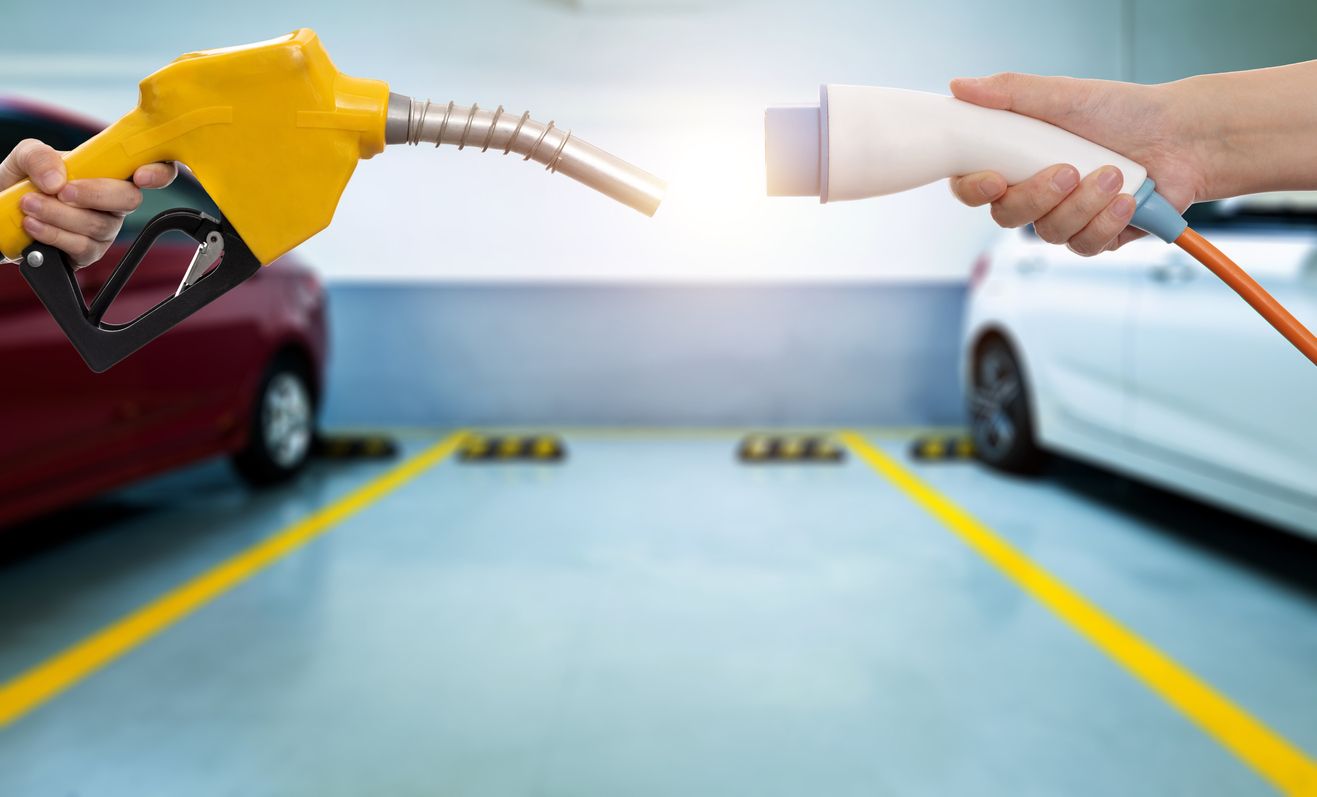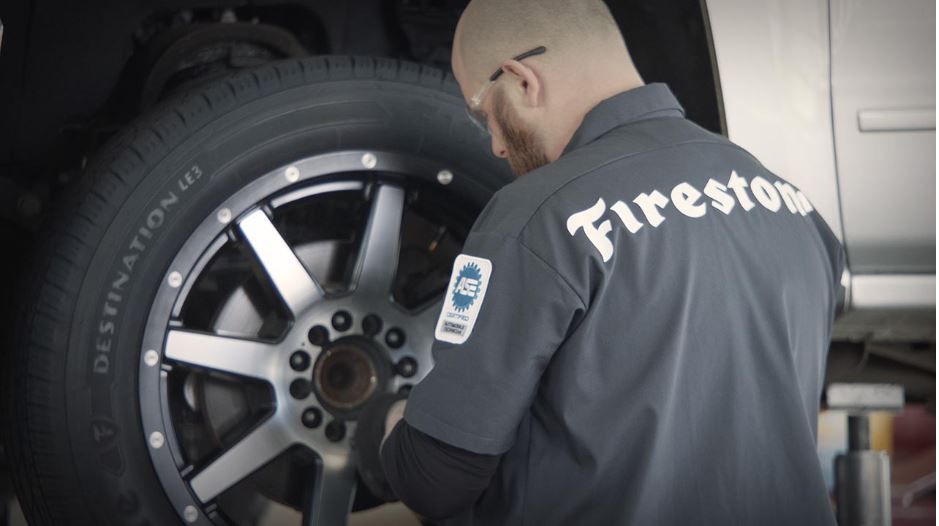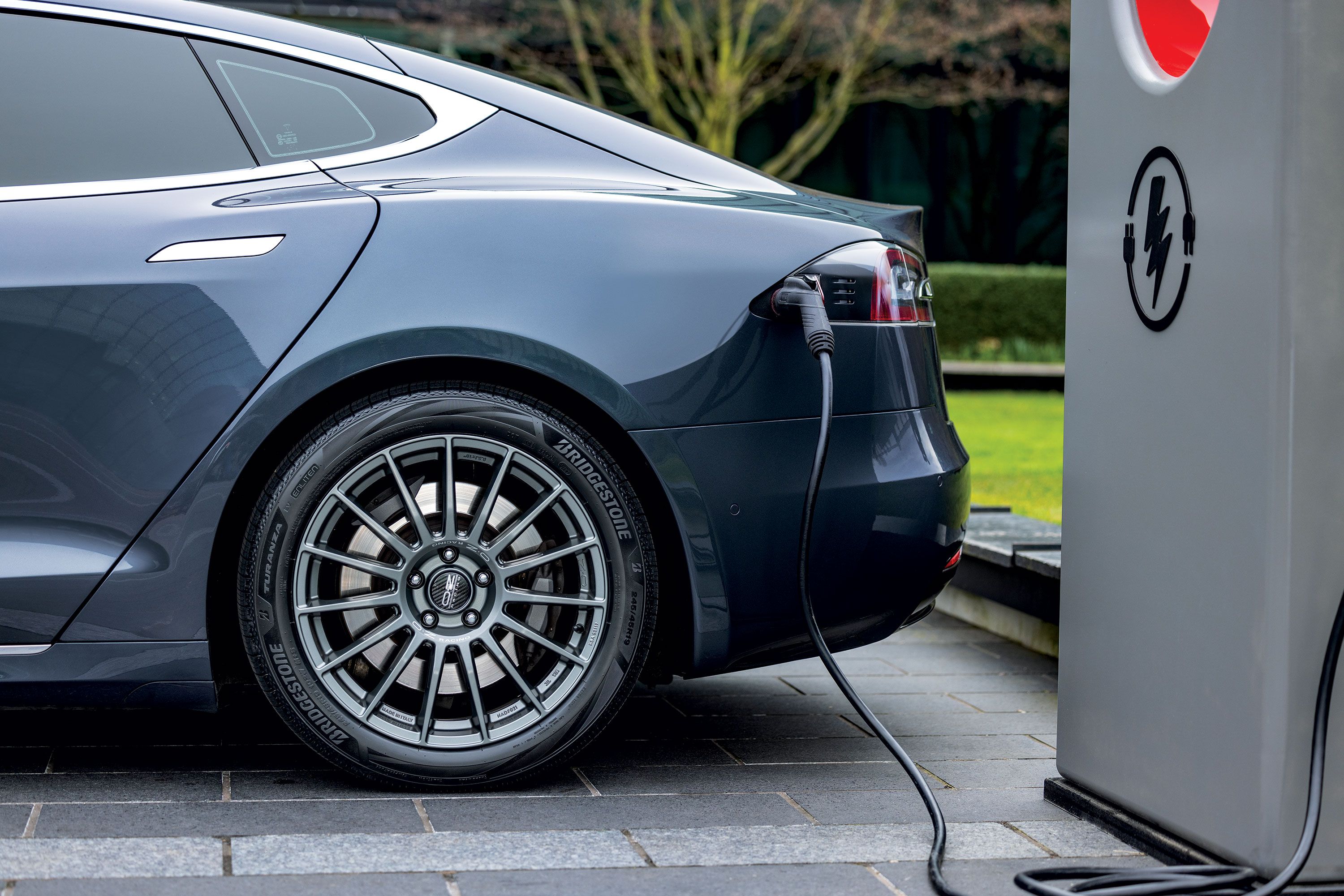It’s time to have a new set of tires installed on your electric vehicle (EV) and you find yourself wondering, “Do electric cars need special tires?” The answer is that specialty EV tires do add value. From helping extend driving range to reducing road noise, a set of EV tailored tires can help optimize the performance of your vehicle. Read on to discover why EV tires differ from conventional ones and where you can get a top-notch set for your ride.
EV Tires vs Regular Tires: 4 Factors to Consider
Just like you need the proper car care services for electric and hybrid vehicles, you also need a proper set of tires for your EV. Though tires made for internal combustion engine (ICE) vehicles may physically fit onto your EV’s rims, they likely won’t offer the same attributes as a set of EV specific tires. Unlike the average ICE car, EVs benefit when the tires also excel in these four areas:
1. Weight Capacity
Do electric vehicles weigh more than gas vehicles? — Oftentimes, yes. Due to their large, heavy battery packs, EVs typically weigh about 10% to 20% more than conventional ICE vehicles. Fortunately, most EVs distribute this added weight evenly across the entire vehicle to minimize its negative impact on handling and tire wear. But uniform weight distribution can only do so much — increased mass also requires tires that won’t buckle during intense cornering, braking, and accelerating.
While this attribute can be found in certain traditional tires and specialty EV tires, it's important to do your research. Start by following the tire’s load rating specification set by the manufacturer.
2. Tread Wear Life
Many electric vehicles deliver near-instantaneous torque and acceleration — an exhilarating experience, though one that undoubtedly places enormous strain on their tires. Regenerative braking also takes its toll on tire tread life. In fact, Hyundai reports that EVs wear down their tires 20% faster than ICE-powered vehicles due to that instantly available torque. To address this problem, many EV specific tires utilize specialized rubber compounds that enhance tread wear life.
3. Rolling Resistance
Rolling resistance refers to the amount of energy lost to friction as your tires rotate. According to Consumer Reports, rolling resistance “accounts for about 16 percent of the total energy used” in EVs, since their powertrain is so efficient otherwise. As such, tires designed with EVs in mind often prioritize low rolling resistance in order to maximize their range between recharging.
4. Noise Level
Without combustion happening under the hood, EVs are remarkably quiet. No clacking valve train or rumbling exhaust means that road noise becomes more apparent inside of EV cabins. Thus, the construction of EV tires often minimizes noise production — something traditional tires don’t always prioritize. If you were to install tires made for ICE vehicles on an EV, your driving experience might become noticeably louder.
What Are the Best Tires for Electric Cars?
If your vehicle needs EV specific tires, we recommend a set of Bridgestone Turanza EVs. Where standard tires might be adequate on electric cars, Turanza EVs excel, making them one of the best tires for electric vehicles. Their innovative tread design and specialized rubber compound maximizes range by minimizing rolling resistance, allowing you to explore more on a single charge. Factor in their high load capacity and solid rib design, and Turanza EVs deliver responsive handling and exceptional durability. Best of all, they’re whisper-quiet, so you can focus on the things that matter without distracting road noise.
Amp Up Your Automobile at Firestone Complete Auto Care
Ready to electrify your ride with the right set of tires? Visit the tire experts at your local Firestone Complete Auto Care and uncover the benefits of EV specific tires. Schedule an appointment today to experience the electrifying combination of performance, efficiency, and sustainability of Bridgestone Turanza EV tires!



